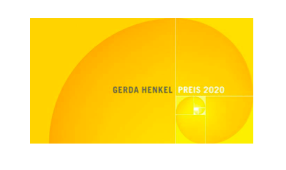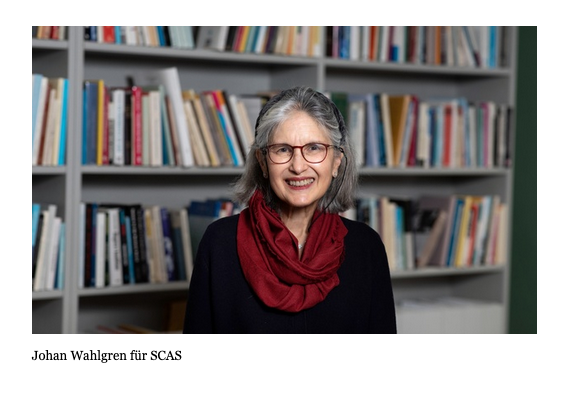Director Emerita Lorraine Daston Awarded the Gerda Henkel Prize 2020
- Jun 23, 2020
- Institute News
- Dept. Daston
- Lorraine Daston
"The question of how breakneck scientific progress and lasting scientific truth can be reconciled is still relevant today, as the confusion about every new medical study shows, which contradicts the previous recommendations." (Lorraine Daston, When Science Went Modern)
Director Emerita Lorraine Daston has been awarded the Gerda Henkel Prize 2020.
"At a time when the value and credibility of scientific knowledge are relativized in an unexpected way or even fundamentally questioned, the historical research of the award winner is of the utmost importance and topicality," quoted the jury of their reasoning.
Daston will accept the award of 100,000 euros in Düsseldorf in 2022.
In its unanimous decision, the foundation board of trustees followed a recommendation of the jury, which includes the members of the scientific advisory board and personalities independent of the foundation. The jury headed by Prof. Dr. Peter Funke justified its recommendation as follows:
"Science historian Lorraine Jenifer Daston is one of the world's most renowned representatives of her field. From 1995 until she retired (2019), she was director at the Max Planck Institute for the History of Science in Berlin, having previously worked at universities Harvard, Princeton, Göttingen, and Chicago. From the very beginning her research focused on the fascination of "science," the origins of which are the amazement and curiosity that Aristotle started with all scientific knowledge.  Through a combination of philosophical questions and historical contextualization she seeks to explore basic categories of science such as natural law, rationality, objectivity, and scientific practices such as observation, measurement, experiment, and visualization in their respective historical mediation.The range of her numerous books and essays is thematic and extraordinarily broad: from the early modern era to the 21st century, from the baroque curiosities to scientific quantification. Her publications combine analytical acumen and impressive expertise with the utmost clarity of reasoning and stylistic brilliance. With her innovative research, Daston has shaped not only her subject, but also the humanities as a whole. In addition, she impressively succeeds in making her research on categories such as truth, proof, or fact fruitful for central debates of the present. At a time when the value and credibility of scientific knowledge is unexpectedly relativized or even fundamentally questioned, her historical research is of the greatest importance and topicality."
Through a combination of philosophical questions and historical contextualization she seeks to explore basic categories of science such as natural law, rationality, objectivity, and scientific practices such as observation, measurement, experiment, and visualization in their respective historical mediation.The range of her numerous books and essays is thematic and extraordinarily broad: from the early modern era to the 21st century, from the baroque curiosities to scientific quantification. Her publications combine analytical acumen and impressive expertise with the utmost clarity of reasoning and stylistic brilliance. With her innovative research, Daston has shaped not only her subject, but also the humanities as a whole. In addition, she impressively succeeds in making her research on categories such as truth, proof, or fact fruitful for central debates of the present. At a time when the value and credibility of scientific knowledge is unexpectedly relativized or even fundamentally questioned, her historical research is of the greatest importance and topicality."
